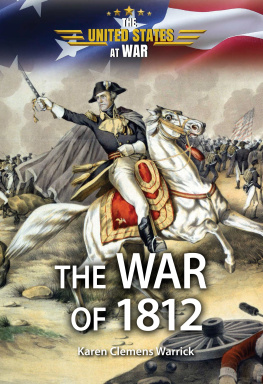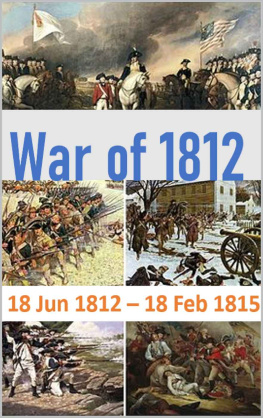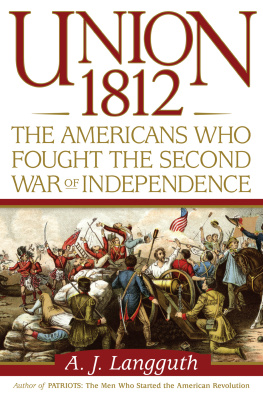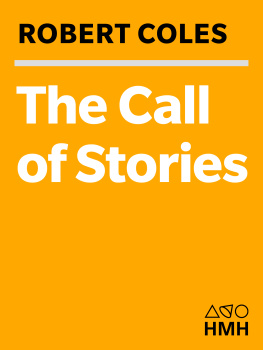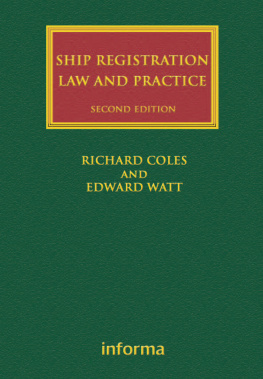THE UNIVERSITY OF CHICAGO PRESS, CHICAGO 60637
The University of Chicago Press, Ltd., London
1965 by The University of Chicago
All rights reserved. Published 1965
Paperback edition 1966
Printed in the United States of America
05 04 03 02 01 14 15 16 17
ISBN: 0-226-11350-7 (paperbound)
ISBN: 978-0-226-22029-1 (ebook)
LCN: 65-17283

The paper used in this publication meets the minimum requirements of the American National Standard for Information SciencesPermanence of Paper for Printed Library Materials, ANSI Z39.481984.
The War of 1812
By Harry L. Coles
THE CHICAGO HISTORY OF AMERICAN CIVILIZATION
Daniel J. Boorstin, EDITOR
THE UNIVERSITY OF CHICAGO PRESS
CHICAGO AND LONDON

Editors Preface
Few events in American history have been so diversely judged as the War of 1812. In its time, some New Englanders contemptuously called it Mr. Madisons War; recently, some historians have dignified it as The Second War for American Independence. Despite the fact that its events cast up one of the most popular leaders of the century, and that the National Anthem was composed during one of its battles, it has not attained romance in our history books or become a fertile source of folklore.
But the very facts which have made the War of 1812 obscure in every sense of the word also give it peculiar significance for the twentieth-century student of American foreign policy and military strategy. Many of the issues which would later face the United States there appeared on a smaller stage. Political issues were never more entangled with economic issues. In the offensive against the Creek Indians in the southwest there was even something resembling what would later be known as total war. It was hard at the time, and is not much easier now, to say precisely why the war was fought, what were the truly decisive battles, by whom the war was really won, or what were its most important consequences.
This subtlety of issues also helps explain why the war has commanded some of the most interesting and flamboyant talents ever spent on the writing of American history. Even before the war had become a battleground for scholarly monographs, it had been made a spectacle of grand conflict by eloquent historians writing multivolume works. Henry Adams, Admiral Mahan, and Theodore Roosevelt had made the war a parable of American policy even before the specialists of the new profession of American historian had begun its more academic debates. When we read about the War of 1812, then, we are witnessing a drama in which men who shaped American history in our own century found some of their guiding principles. And we are seeing how the American past itself, in the hands of historians, becomes an instrument for shaping the present.
If we follow the interesting clues that Mr. Coles has given us in this volume, we may be justified in calling the War of 1812 The Sobering War. Not only because the blunders and defeats of that war had a sobering effect on the men of its generation. It did occasion some sensible administrative reorganization of the federal military forces, and it did sweep away some illusions, even if it was not sufficiently sobering to persuade Americans generally of the weakness of their old militia system, or to convince them that they could not, without long planning and preparation, defeat the armed forces of Europe. From a twentieth-century perspective, this is a sobering war in still another sense. The relatively small scale of its operations, the confusion of its causes, and the uncertainties of its conclusionsall these make a story in which we may see the ambiguities of international conflict drawn more vividly than in the larger, more passion-laden battles which had more sharply etched consequences.
The Chicago History of American Civilization aims to make each aspect of our culture a window to all our history. The series contains two kinds of books: a chronological group, which provides a coherent narrative of American history from its beginning to the present day, and a topical group, which deals with the history of varied and significant aspects of American life. This book is one of the topical group, which includes, among others, Howard H. Peckhams Colonial Wars and War for Independence and Otis A. Singletarys Mexican War.
DANIEL J. BOORSTIN


Table of Contents
Illustrations
MAPS
Northern Theater
Southern Theater
PLATES
I
Prologue to War
The War of 1812 resulted from the unsuccessful efforts of the United States to maintain its interests and its honor in a world divided into two armed camps. Both in its origins and in the way it was fought, the war was an outgrowth of a general European conflict that raged from 1793 to 1815, with one brief recess, 18011803.
From the founding of the American Republic peace was a cornerstone of its foreign policy. Though President Washington had serious difficulties with both the chief antagonists, Great Britain and France, he somehow managed to maintain the neutrality of the United States. President John Adams had little difficulty with England, thanks to Jays Treaty, but he was obliged to engage in an undeclared naval war with France. Under the efficient leadership of the Federalists both the army and the navy were built up to respectable, if not formidable, forces. But while preparing for war John Adams worked for peace and, disregarding the advice of some of the militarists in his party, he made a treaty with France in 1800 that cost him a second term.
After Jefferson became President in 1801 France and England concluded the Peace of Amiens; and the Republicans took relish in quietly dismantling the military system of the Federalists. When general war broke out again in 1803 Jefferson attempted to maintain the neutral rights of the United States not by force, but rather by diplomatic negotiation and economic coercion. The same general policy was pursued by President Madison when he assumed office in 1809. By the autumn of 1811, however, a widespread, though by no means universal, demand for war arose. During the session of 181112, Congress passed certain measures providing for military preparation while President Madison made some last-ditch efforts to bring about a peaceable solution. Unable, however, to accomplish anything on the diplomatic front, President Madison finally recommended a declaration of war against Great Britain which was passed by Congress in June, 1812.
THE EXPERIMENT OF ECONOMIC COERCION
The reasons for the coming of the war are many and complicated. And though historians are by no means in agreement on the relative weight to be attributed to various factors, they have in general discussed two sets of causes: maritime grievances and western aims. Let us examine the maritime grievances first.


 The paper used in this publication meets the minimum requirements of the American National Standard for Information SciencesPermanence of Paper for Printed Library Materials, ANSI Z39.481984.
The paper used in this publication meets the minimum requirements of the American National Standard for Information SciencesPermanence of Paper for Printed Library Materials, ANSI Z39.481984.




